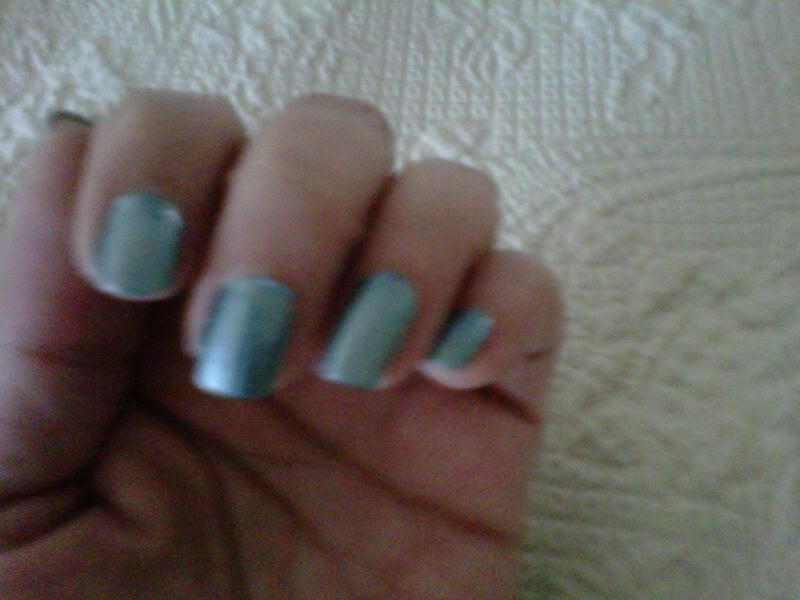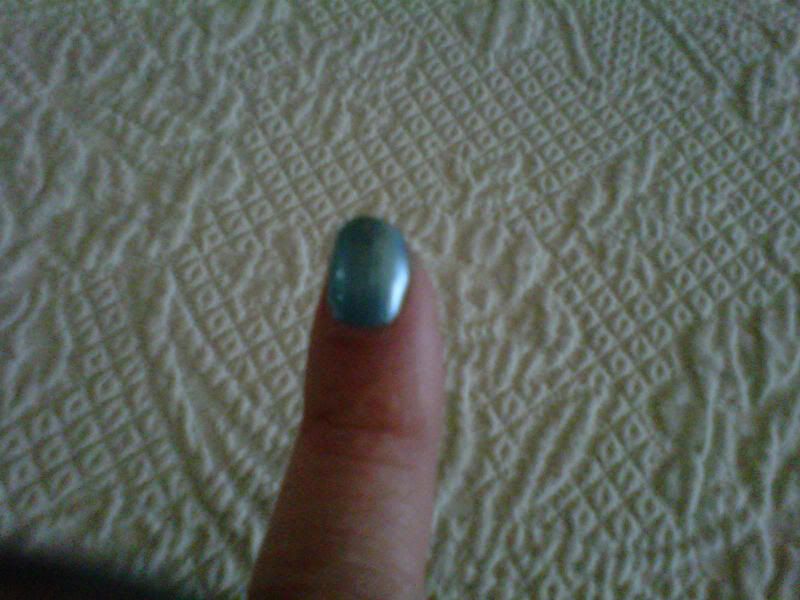1. Avoid nail polishes containing formaldehyde.
This chemical can cross link the keratin protein in your nails. While it does make the nails harder, it also makes them so stiff that they become brittle so they actually break MORE easily.
2. Dont bother with gelatin.
Many products claim that gelatin strengthens nails because it is made from protein, but there is no scientific evidence that gelatin has any benefit to nails.
3. Limit your use of polish removers.
These products contain alcohol and other solvents that dry nails out, making them more prone to breakage.
4. Use a good hand cream or cuticle cream.
Daily exposure to detergents and harsh chemicals dries out your nails and makes them break more easily. By moisturizing them often you can prevent loss of moisture and reduce the chance of breakage. Lotions with petrolatum or mineral oil are the best. You might try the Terra Naturals Nail Strengthener.
Source: http://thebeautybrains.com/2007/04/04/four-easy-tips-for-longer-stonger-nails/
Wednesday, February 23, 2011
LcB Nail Lacquer
LaKhiva Blann of Little Rock has created a new nail polish line for one specific purpose - to build self-esteem.
Take a peek - http://www.lcbnaillacquer.com/shop.html
Take a peek - http://www.lcbnaillacquer.com/shop.html
Monday, February 14, 2011
Sally Hansen Color Quick
This is fabulous! Just click the pen for color and paint your nails. You can even carry this pen in your purse. It really really does dry very quickly.



http://www.sallyhansen.com/product.cfm?product=397



http://www.sallyhansen.com/product.cfm?product=397
Monday, February 7, 2011
Shelf Life of Nail Polish
Just as it dries on your nails, over time, nail polish can dry out in the bottle. Here are some good rules to make your prized polishes last as long as possible.
What's In Nail Polish?
Women have been painting their nails as far back as 3000 B.C. when the Chinese used a combination of Arabic gum, egg whites, gelatin, and beeswax to make a lacquer, with crushed flowers to provide color. While these ingredients are certainly not used in today's nail polishers, the art of painting one's nails has evolved through the years. The chief base ingredient is nitrocellulose, which is a highly flammable compound that can be combined with a solvent to make a lacquer. Today, cosmetics companies add a variety of compounds to enhance color, drying time, and staying power.
How Long Will It Last?
As a rule of thumb, nail polish can last at best for two years. While from a health perspective there are no chemicals in nail polish that are dangerous after two years, the polish typically dries to a point where it's discolored, or a smooth application cannot be achieved.
Are There Ways I Can Extend Nail Polish's Shelf Life?
Here are some general rules for storing your polish:
1. Keep polish in a cool, dry place. Nail polish is most affected by heat.
2. Keep a tight lid on the bottle. While this may seem simple, ensuring your polish is fully sealed can go a long away in extending its life.
3. Store bottles in an upright position. Bottles that are kept on their sides (or even upside down) can discolor more easily because it's harder to shake the pigments together.
Should I Refrigerate My Nail Polishes?
While many claim that keeping polish in the refrigerator will extend its shelf life, there is no conclusive proof that this method works. Refrigeration may slow the drying-out process; however, some of the ingredients in nail polish are highly flammable. Keeping them in an electric refrigerator may be more of a safety concern than a health concern.
Nail Polish Goes Green
Nail polish is known for its strong smell, and this is chiefly due to the chemical ingredients it contains. Today, companies are releasing polishes that are termed non-toxic, formaldehyde-free, or even water-based, which uses water and plant-based compounds to create a nail-polish-like substance. Because chemicals are incorporated with standard nail polishes to extend their shelf lives, these types of polish may not last as long as their chemical counterparts.
http://www.ehow.com/about_5112923_shelf-life-nail-polish.html
What's In Nail Polish?
Women have been painting their nails as far back as 3000 B.C. when the Chinese used a combination of Arabic gum, egg whites, gelatin, and beeswax to make a lacquer, with crushed flowers to provide color. While these ingredients are certainly not used in today's nail polishers, the art of painting one's nails has evolved through the years. The chief base ingredient is nitrocellulose, which is a highly flammable compound that can be combined with a solvent to make a lacquer. Today, cosmetics companies add a variety of compounds to enhance color, drying time, and staying power.
How Long Will It Last?
As a rule of thumb, nail polish can last at best for two years. While from a health perspective there are no chemicals in nail polish that are dangerous after two years, the polish typically dries to a point where it's discolored, or a smooth application cannot be achieved.
Are There Ways I Can Extend Nail Polish's Shelf Life?
Here are some general rules for storing your polish:
1. Keep polish in a cool, dry place. Nail polish is most affected by heat.
2. Keep a tight lid on the bottle. While this may seem simple, ensuring your polish is fully sealed can go a long away in extending its life.
3. Store bottles in an upright position. Bottles that are kept on their sides (or even upside down) can discolor more easily because it's harder to shake the pigments together.
Should I Refrigerate My Nail Polishes?
While many claim that keeping polish in the refrigerator will extend its shelf life, there is no conclusive proof that this method works. Refrigeration may slow the drying-out process; however, some of the ingredients in nail polish are highly flammable. Keeping them in an electric refrigerator may be more of a safety concern than a health concern.
Nail Polish Goes Green
Nail polish is known for its strong smell, and this is chiefly due to the chemical ingredients it contains. Today, companies are releasing polishes that are termed non-toxic, formaldehyde-free, or even water-based, which uses water and plant-based compounds to create a nail-polish-like substance. Because chemicals are incorporated with standard nail polishes to extend their shelf lives, these types of polish may not last as long as their chemical counterparts.
http://www.ehow.com/about_5112923_shelf-life-nail-polish.html
Subscribe to:
Comments (Atom)